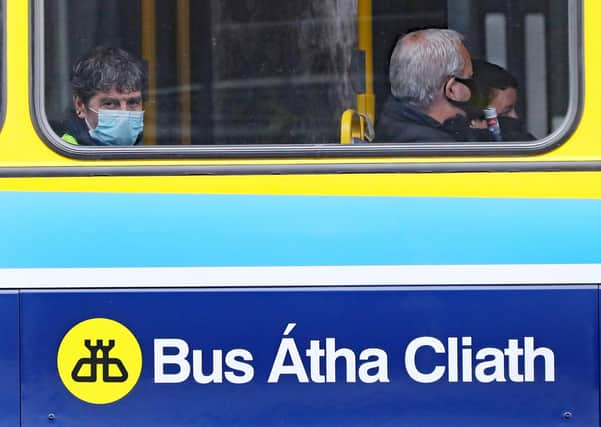A ‘worrying trend’ with increasing number of Covid-19 cases in Republic


At least six fresh diagnoses were associated with international travel, the government’s top health advisers said, as they reiterated warnings against encouraging overseas tourism too soon.
Some new clusters have been established, and one in the north west of the Republic involved travel links with Iraq, said Tony Holohan, the doctor leading the state’s pandemic response.
Advertisement
Hide AdAdvertisement
Hide AdHe said: “We are starting to see a worrying trend, with the number of reported cases increasing, and some new clusters.”
More than 1.1 million cases were reported globally last week.
The Republic had driven down the number of infections but medical experts have warned against non-essential travel and cautioned young people against ignoring lockdown restrictions or thinking coronavirus was defeated.
There were no new deaths reported to the Health Protection Surveillance Centre on Monday.
There have now been 1,735 Covid-19 related deaths.
Advertisement
Hide AdAdvertisement
Hide AdAs of midnight June 28, public health chiefs have been notified of 24 confirmed cases, bringing the total to 25,462.
The chief medical officer has said he is deeply worried at the prospect of greater foreign travel associated with easing restrictions next month.
Irish ministers had been intending to put in place air bridges with countries with low coronavirus infection rates by July 9, allowing them to bypass quarantine in an effort to boost international tourism and allow more people to take overseas holidays.
Dr Holohan expressed concern at the plan and said many of the most popular European holiday spots did not have good enough statistics for controlling the virus.
Advertisement
Hide AdAdvertisement
Hide AdDr Ronan Glynn, deputy chief medical officer, said: “Today we are reporting at least six cases associated with international travel.
“Many countries around the world are still experiencing high and increasing levels of this disease.
“Last week, there were over 1.1 million cases reported and there have now been over 10 million cases reported globally to date.
“The risk of imported cases remains high. It’s important that we continue to avoid all unnecessary travel at this time.”
Advertisement
Hide AdAdvertisement
Hide AdDr Holohan said the number of people who were likely to travel from Ireland for non-essential trips and then return was greater than the total of tourists from outside the country coming in.
He noted a cluster of infection in the north west of the country was associated with travel involving Iraq.
Dr Holohan said Europe had not yet seen a widespread resurgence of the virus across entire countries but had faced outbreaks and clusters.
He said: “If we do find ourselves in a situation where we come to the end of phase four and do run into further challenges across the country or in a region, what measures will we need to take?
“It won’t be the same set of measures.
Advertisement
Hide AdAdvertisement
Hide Ad“The population has a far higher understanding of this virus.”
Research conducted on behalf of the Department of Health showed a further increase in the proportion of people who self-reported to be wearing face coverings, now at 45%.
The level of worry was increasing, with 49% believing the worst is behind us and 23% thinking it lies ahead, the survey disclosed.
A total of 64% still believe Ireland will see a second wave, with a quarter now believing the country should introduce more restrictions, and 31% now feel the authorities are trying to return to normal too fast.